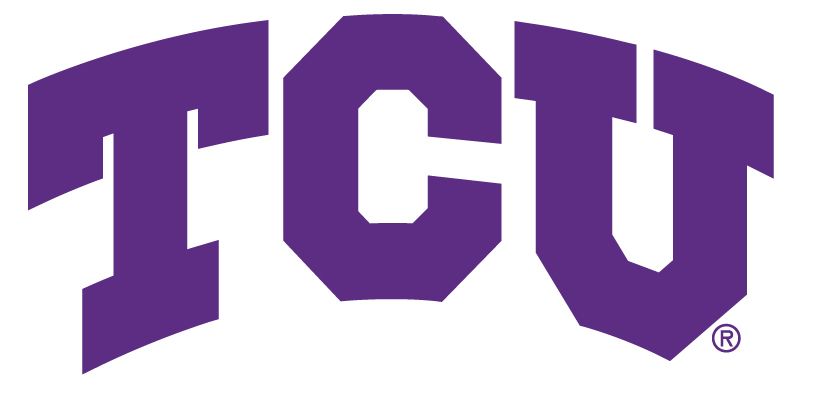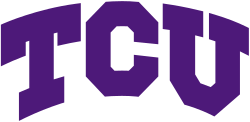Build a Better Campus:
A Five-Part Blueprint
At Texas Christian University, intentional campus planning is informed by — and reflects — the school's commitment to building relationships.
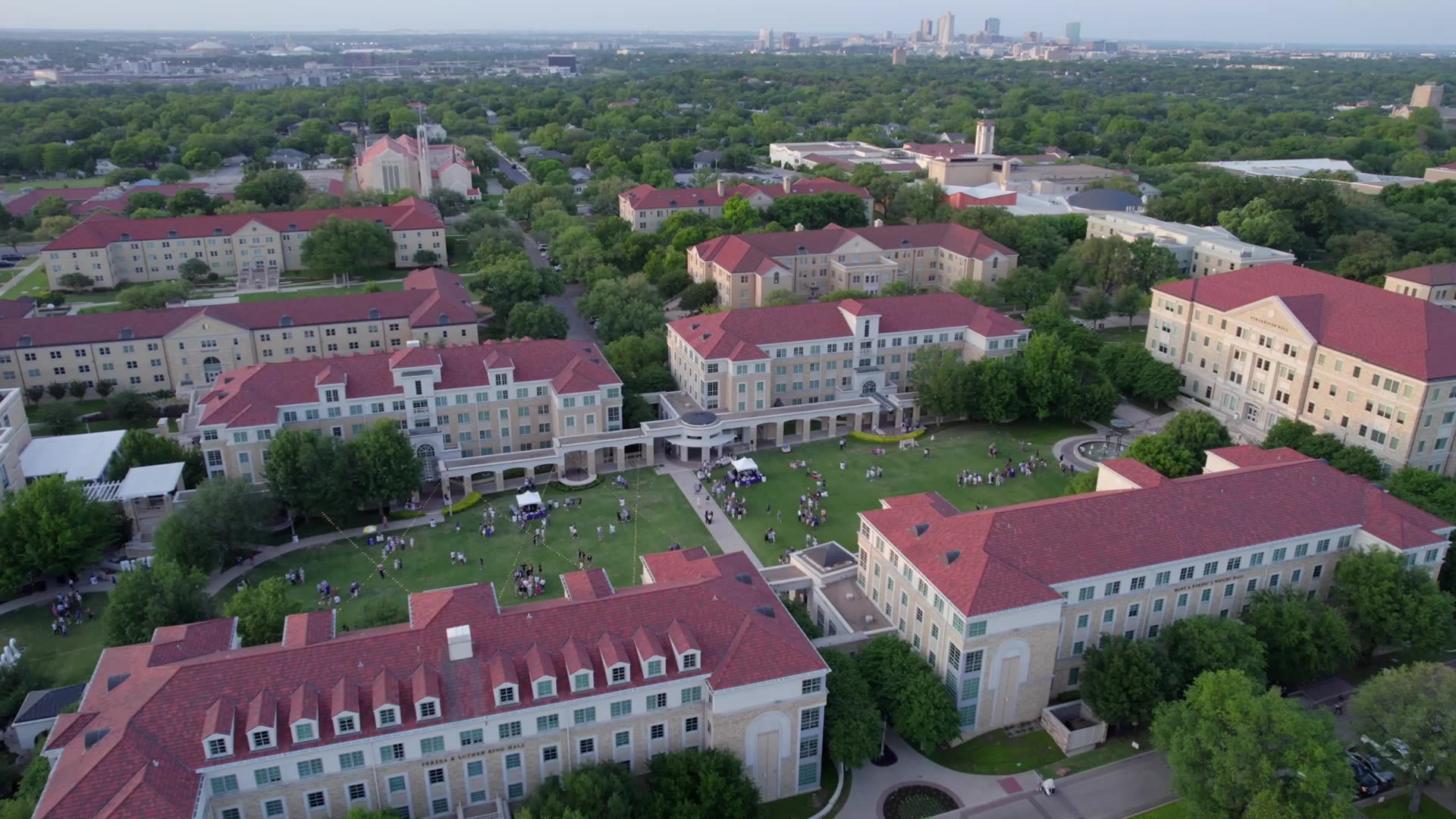
A hallway in the Texas Christian University (TCU) building where Jason Soileau works is lined with aerial photos of campus going back decades. As assistant vice chancellor for planning, design and construction, Soileau specifically likes to point out the images from 2005 to 2008. That’s when a vast asphalt parking lot that had been the center of the campus for many years was replaced with the Campus Commons, a pedestrian-friendly greenspace surrounded by residence halls and anchored at either end by the university union and the iconic Frog Fountain.
Soileau, who joined TCU in 2018, says sacrificing a major core parking lot that almost everyone used is one of the boldest planning moves he’s ever seen a university make. But it paid off.
“The Campus Commons quickly became the heartbeat of the university,” says Soileau. “It’s home to concerts and the annual Christmas tree lighting and serves as the iconic photo moment on campus. When ESPN’s College Gameday visits, that’s where they’re typically set up. During the semesters most affected by the pandemic, it served as an outdoor living room for students — a beloved adaptation we decided to keep.”
Aerial view showing the transformation of TCU's campus from 2003 (left) to 2023 (right).
He believes the university’s bold, intentional vision for growth since 2003 contributed directly to TCU’s latest rankings in The Princeton Review: 16th for most beautiful campus; seventh for quality of life; and first for happiest students.
Soileau and his team work every day to put every square foot of TCU’s landlocked urban Fort Worth campus to its best possible use and to be a positive influence on surrounding areas.
That work is guided by five concepts that Soileau says can be applied at any institution.
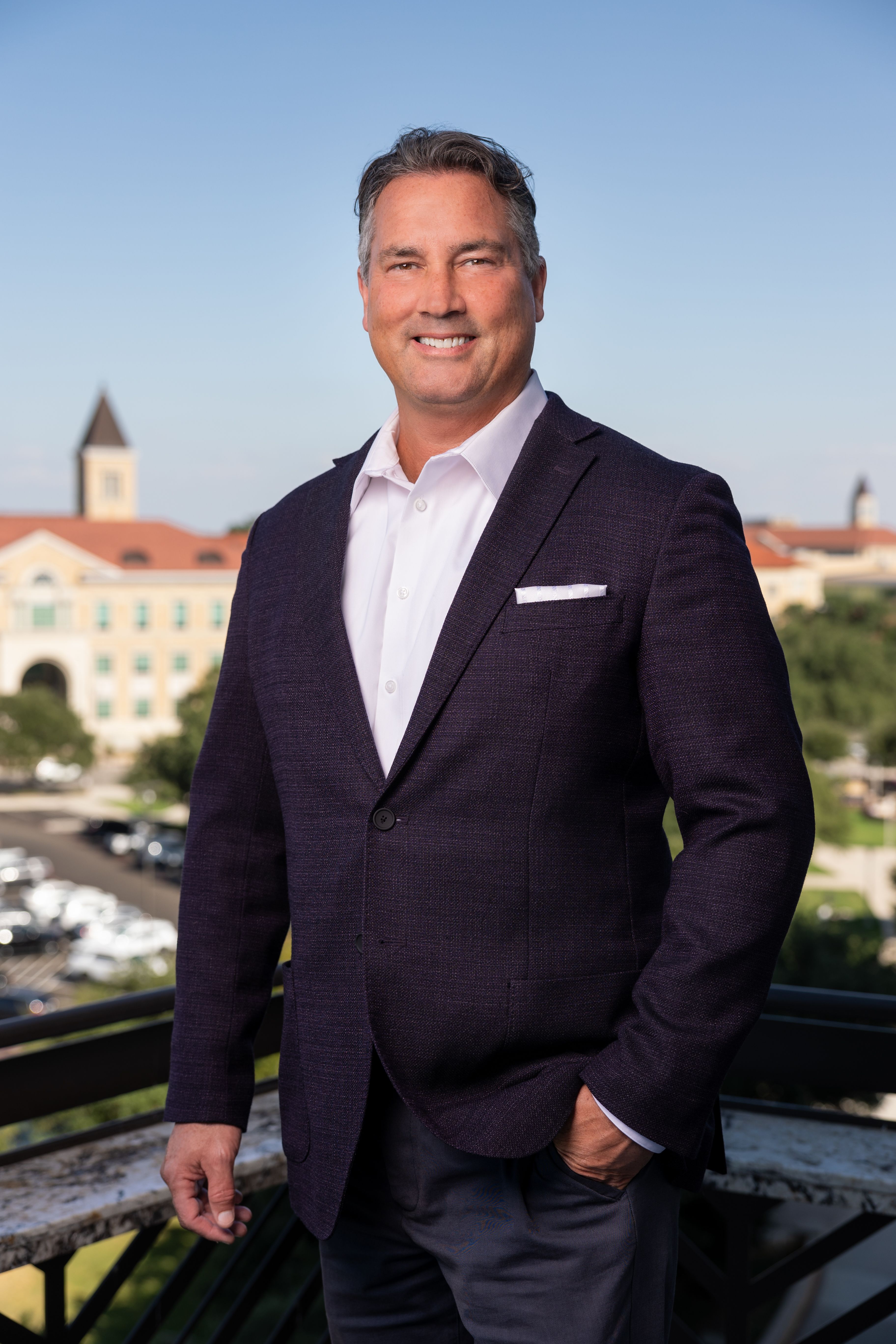
Jason Soileau, Assistant Vice Chancellor, Planning, Design and Construction
Jason Soileau, Assistant Vice Chancellor, Planning, Design and Construction
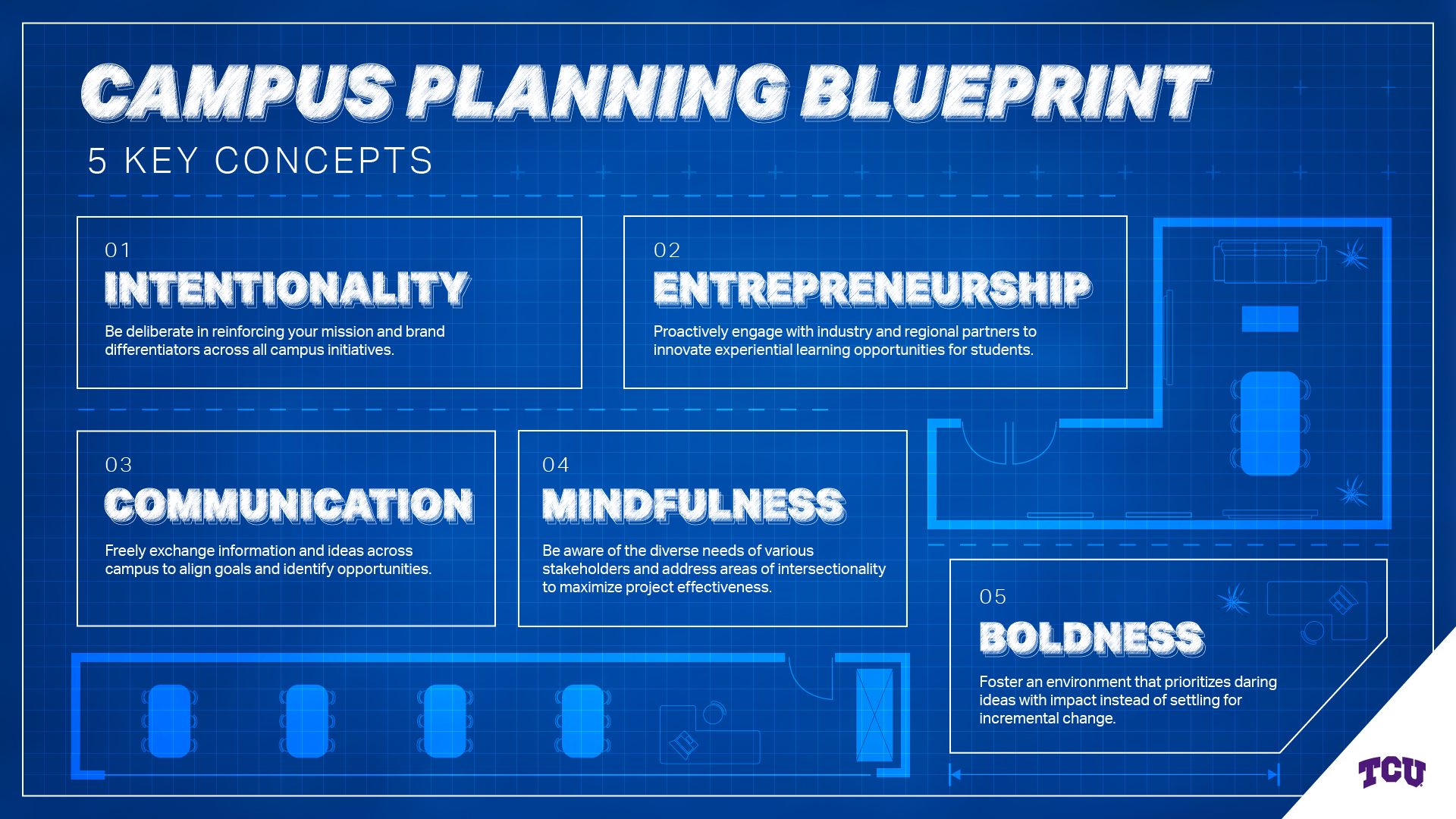
Intentionality
“This is the word I use more than any other,” Soileau says. “It’s about integrating TCU’s strengths into all our projects and initiatives, thereby making those strengths part of the campus DNA.”
At TCU, he explains, one of the greatest strengths is its “connection culture.” Building and fostering relationships — between students, faculty, staff and the community — is central to everything at TCU, and that commitment both guides and is reflected in the planning work.
“There are no wasted spaces on our campus,” Soileau explains. “You will find students in every nook and cranny of our buildings because we strategically fill them with couches, tables, white boards and whatever else will make them conducive to conversation or collaboration.”
Soileau points to the Intercultural Center as an example of intentional planning. “We knew that if it weren’t centrally located, it would be underutilized,” he says. “So, we repurposed an indoor-outdoor space at the student union. It’s since become our most popular interior collaboration hub on campus.”
Intentionality matters outdoors, as well. Worth Hills, the section of campus that contains most sophomore residence halls and Greek housing, has its own Campus Commons-like greenspace that hosts countless student events. The Intellectual Commons project next to the library expanded a critical pedestrian hub and provided new space for students to engage with faculty and each other on their way to classes.
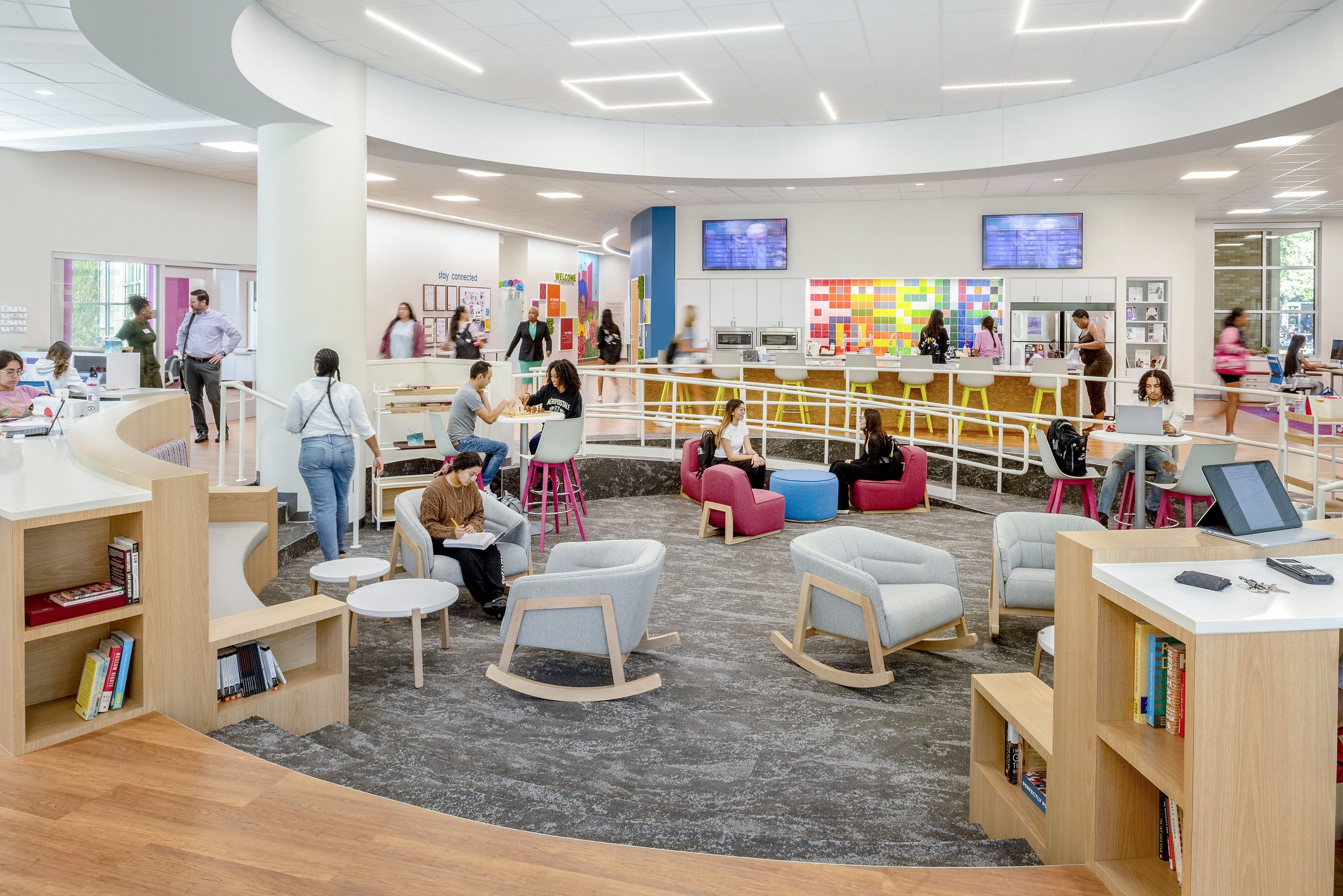
Entrepreneurship
Soileau says that TCU’s “open for business” attitude is how he and his team find opportunities to advance the university’s mission and strengthen connectivity through city, regional and industry partnerships.
For example, they’re working with the community development corporation for the Near Southside, a bustling community south of downtown Fort Worth that includes TCU’s Anne Burnett Marion School of Medicine. The university owns multiple contiguous acres in Near Southside and is inviting local stakeholders, plus industry leaders in medicine and medical technology, to a two-day visioning workshop. They’ll discuss a wide range of topics, including artificial intelligence, machine learning, genomics and an idea for a clinical trial consortium.
TCU leadership also meets regularly with Fort Worth city council members, city planners and the local real estate commission. They talk about the TCU campus, the areas adjacent to it and how the university can continue to be a good neighbor. In addition to campuswide roadway and utility improvements, engaging collaboratively with the city will help pave the way for TCU to explore creating a multi-use, urban-scale development along a campus corridor that will meet student needs in new and creative ways while respecting the TCU campus aesthetic.
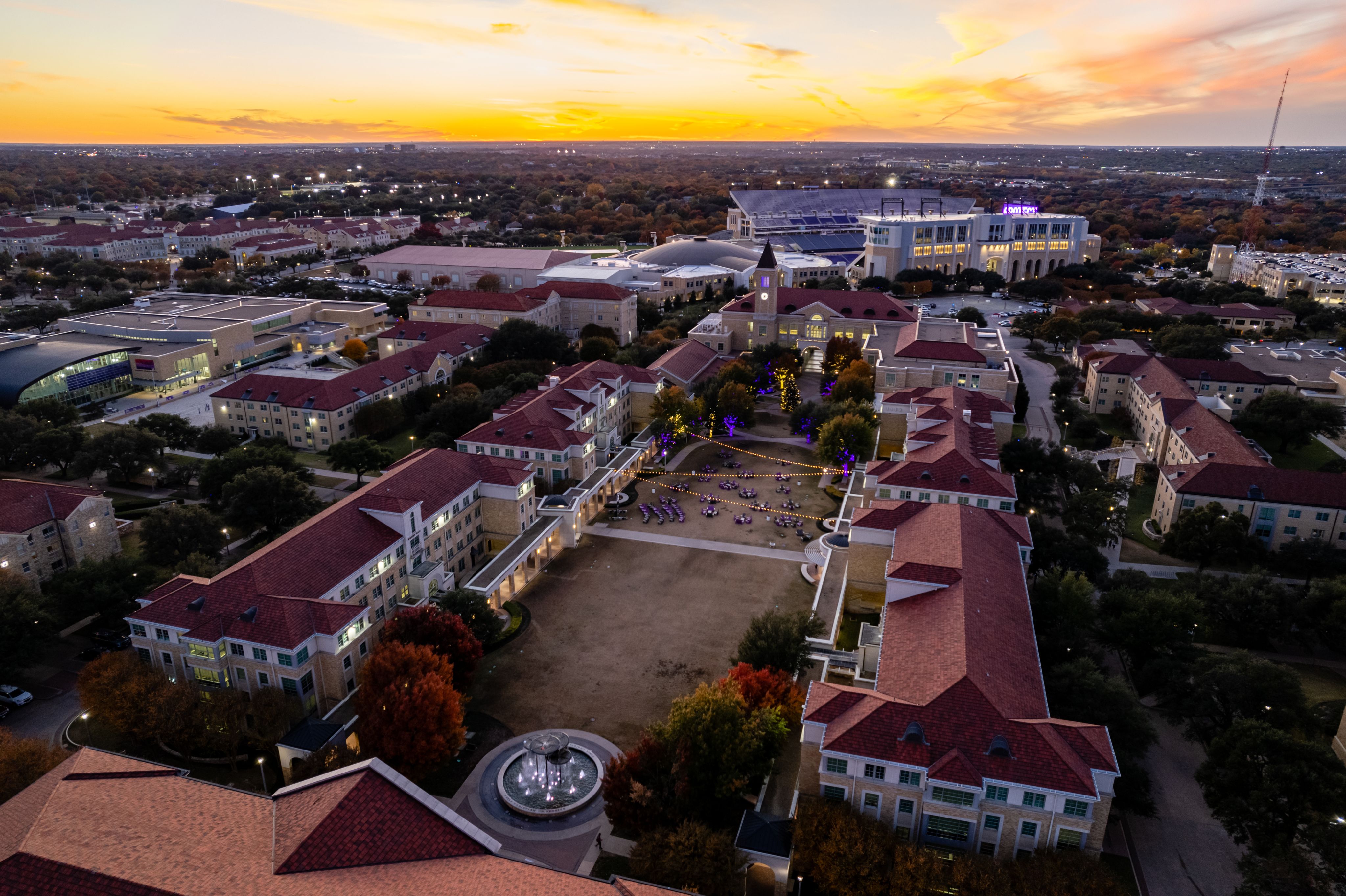
Communication
Forward momentum requires constant communication. Open dialogue helps Soileau not only understand the full breadth of needs, but to facilitate interdisciplinary collaboration.
For example, he and his team are in the process of designing the Athletics Human Performance Center — focused on strength, nutrition and wellness — to serve all 22 athletic programs. From the beginning, they explored partnerships with research faculty in those areas at the College of Science & Engineering and the Harris College of Nursing & Health Sciences. They also continue to nurture and explore potential internal partnerships, such as one between the Department of Nutritional Sciences, which has a food management program and teaching kitchen, and the new dining hall that will be built nearby.
“We’re constantly looking at how we can support research through planning,” he says. Examples include enhancing STEM opportunities through the addition of a behavioral research lab and adaptive reuse of space to support an aquatics environmental toxicology and physiology lab. Strategic planning is also currently underway to renovate space in an existing student-centric building for an innovation hub that facilitates high-impact learning and collaborative research.
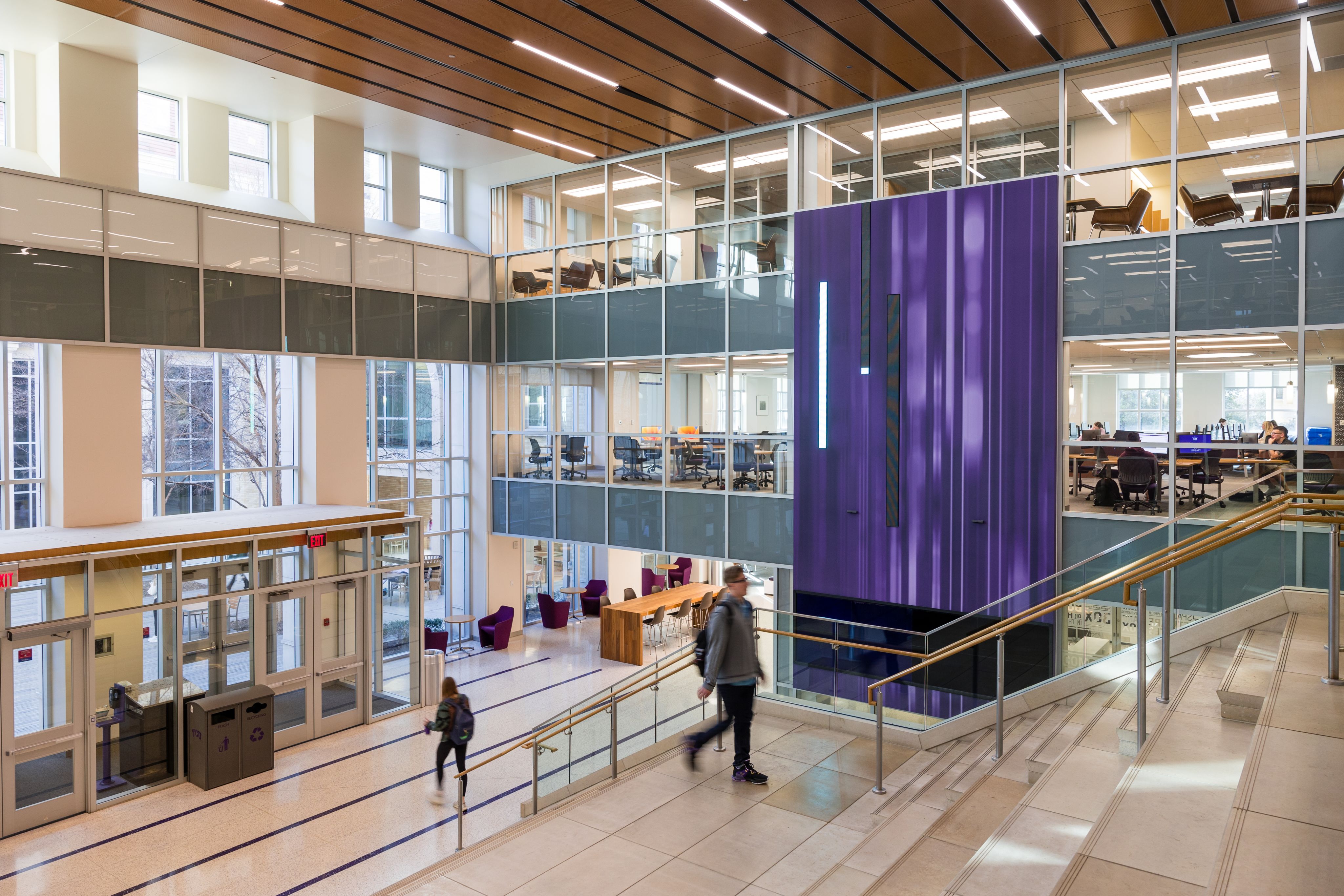
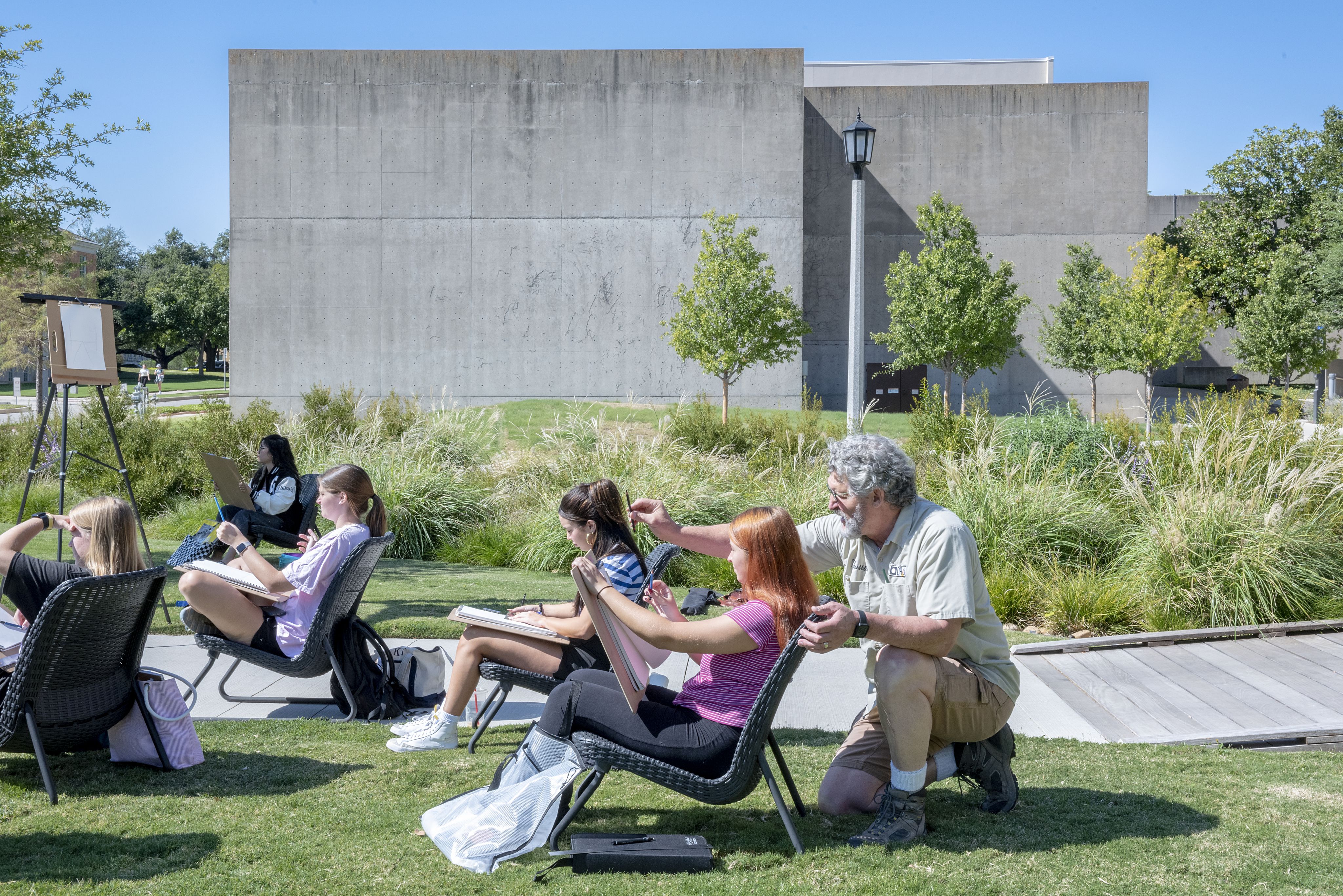
College of Fine Arts students enjoy an outdoor art class in the Creative Commons.
College of Fine Arts students enjoy an outdoor art class in the Creative Commons.
Mindfulness
“Mindfulness is closely related to intentionality,” Soileau explains, “but asks the questions, what else can you achieve with this project? What will take it a step beyond what other institutions would do? What will make it special?”
When he and his team set out to develop the Creative Commons, they knew that the area had a significant drainage problem. “We could have dealt with it underground and made it invisible,” he says, “but instead we constructed a bioswale, a more environmentally friendly landscape feature that channels stormwater properly and remove debris and pollution from it, thereby leveraging the physical campus as a living lab.”
The TCU Race & Reconciliation Initiative, which has researched and raised awareness of past inequalities, is helping the university work toward a more inclusive and equitable culture. To tell that authentic story in an engaging way, Soileau hired an architect based in Washington, D.C., who has worked on some national monuments. Together, they’ve developed a concept that will come to life in the Intellectual Commons in the next couple of years.
Boldness
“I’m fortunate to work in a place where my colleagues also like to swing for the fences,” Soileau says. “Nothing is too audacious to consider if it serves a greater purpose and furthers the overall student experience.”
Earlier this year, for example, the university completed the renovation of Sadler Hall, a centrally-located former administrative building. Now, it is the new home of the John V. Roach Honors College and several other academic departments, 17 classrooms and a gaming lab called the Discovery Space.
To address ongoing regional stormwater challenges, the current master plan draft proposes turning portions of the east campus into green parkway space, without compromising critical infrastructure such as parking. This comprehensive strategy would improve the pedestrian experience and strengthen campus connection to the Fort Worth park system while enhancing student recreation opportunities.
“Some might wonder why we go to these lengths,” Soileau says. “All I can say is that TCU has lasted 150 years through intentional, entrepreneurial, informed and thoughtful growth, and we believe that’s what will carry us through the next 150 years.”
To learn more about TCU’s intentional campus planning and these key concepts , contact Jason Soileau at J.SOILEAU@tcu.edu.
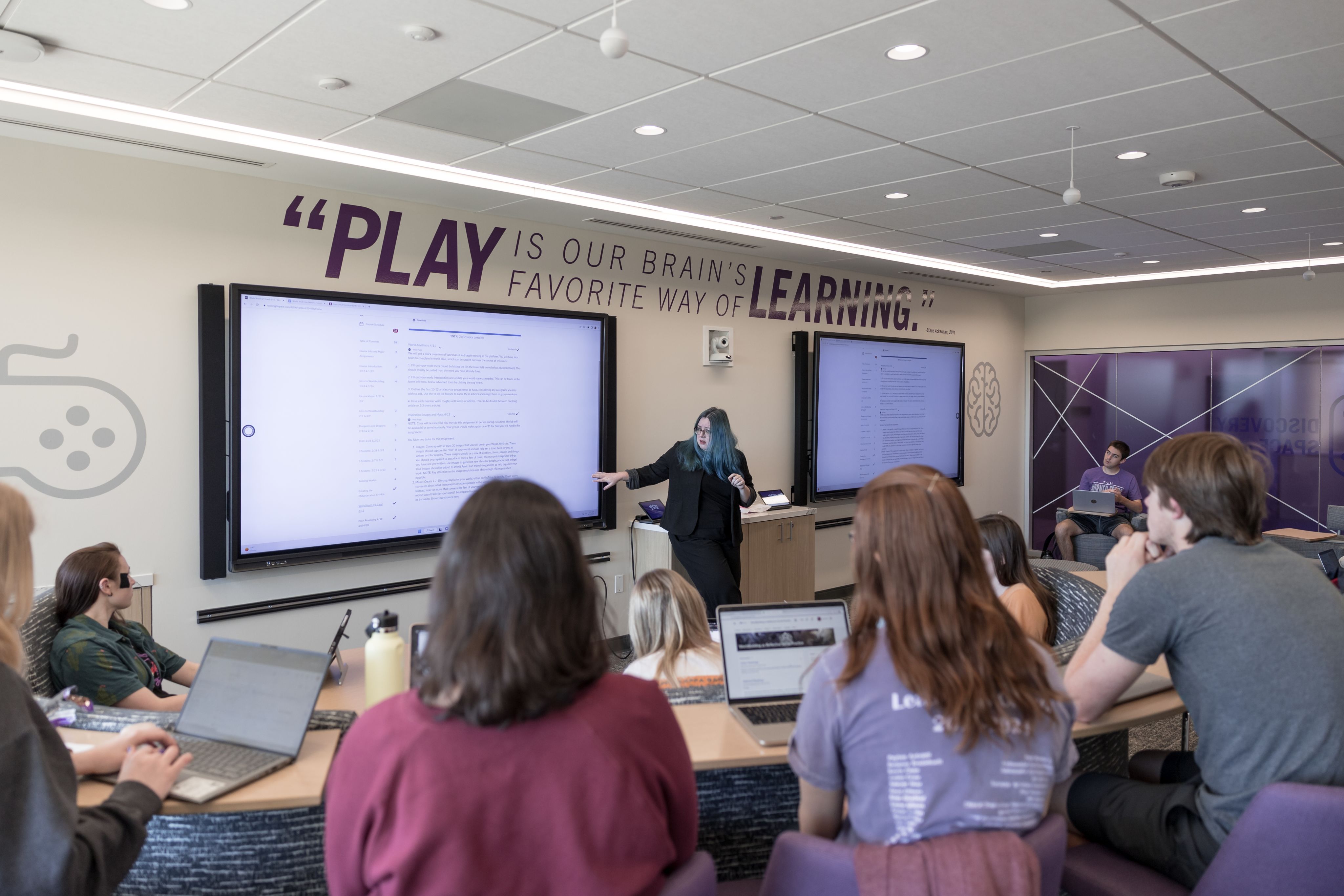
Students listen to a lecture about game studies in the Discovery Space, one of the newly renovated classrooms in Sadler Hall.
Students listen to a lecture about game studies in the Discovery Space, one of the newly renovated classrooms in Sadler Hall.
This content was paid for and created by Texas Christian University. The editorial staff of The Chronicle had no role in its preparation. Find out more about paid content.


